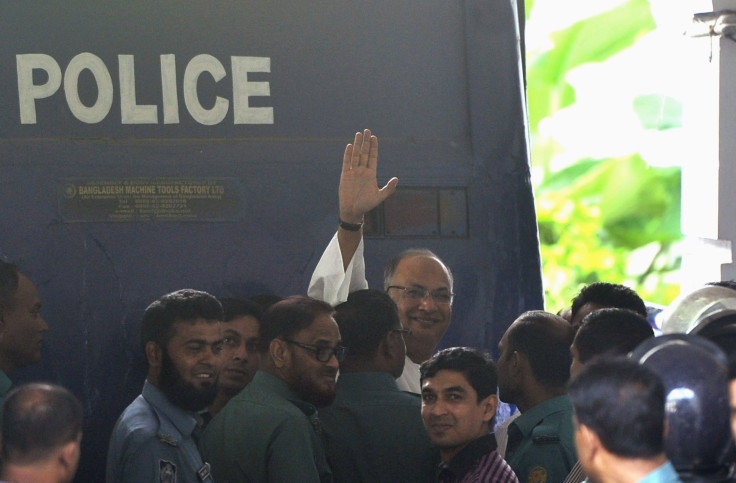Bangladesh Opposition Leader Death Sentence: Supreme Court Upholds Salauddin Quader Chowdhury Verdict

Bangladesh’s Supreme Court on Wednesday upheld the death sentence of senior opposition leader Salauddin Quader Chowdhury for committing war crimes during the country's 1971 war of independence against Pakistan. The court dismissed Chowdhury’s appeal against the death penalty handed down by a war crimes tribunal in 2013.
The panel, led by Chief Justice Surendra Kumar Sinha, upheld the death sentence of the 66-year-old leader of the Bangladesh Nationalist Party (BNP) for involvement in the killing of a herbal medicine company owner Nutan Chandra Singha, Awami League leader Mozaffar Ahmed and his son, and two incidents of genocide in the country's southeastern region in Raozan, Chittagong, the Daily Star newspaper reported. The court also upheld 20 years of jail for two charges of conducting genocide, persecution and deportation in Hindu-majority areas. He was, however, acquittal over the killing of Satish Chandra Palit in Raozan, for which the tribunal had sentenced him to 20 years in jail.
The Supreme Court upheld five years of imprisonment for Chowdhury for abducting, confining and torturing Saleh Uddin, who later became vice-chairman of Shahjalal University of Science and Technology, and Nizamuddin Ahmed, who later became a journalist.
In October 2013, the country's International Crimes Tribunal had sentenced the BNP leader to death for nine of the 23 charges, including four counts of genocide. He was found guilty of killing 200 civilians, mostly Hindus, in Chittagong. His party had then maintained that the trial was politically motivated. It is estimated that nearly 3 million people were killed in the nine-month Bangladesh Liberation War that ended in December 1971.
Previous verdicts against Muslim politicians have triggered fatal violence. Prosecutors have described Chowdhury as a merciless killer, Agence France-Presse reported. "Chowdhury then shot him [Nutan Chandra Singha] again to make sure he was dead," prosecutor Zead Al Malum had told AFP after the 2013 verdict.
Chowdhury has previously served as an advisor to BNP leader and former prime minister Khaleda Zia. His father was also a former speaker of Pakistan and served as an acting president several times.
© Copyright IBTimes 2024. All rights reserved.












